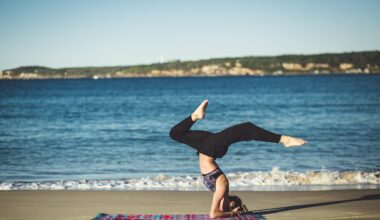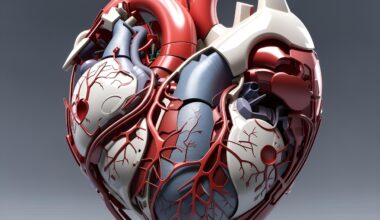Holistic Week 43 Workout Plans: Fitness, Meditation, and Relaxation
This week, we delve into a complete workout plan focusing on holistic well-being, emphasizing fitness, meditation, and relaxation. The integration of these practices can enhance your mental, physical, and emotional health. Starting your week with physical workouts boosts energy levels and releases endorphins, contributing positively to your mood. Consider incorporating various forms of exercise, such as strength training and cardiovascular workouts, which complement relaxing activities like yoga, mindfulness, and meditation. These workouts should encourage physical growth while also allowing time for mental peace. It’s essential to find balance. It can be beneficial to draw up a schedule that outlines when to incorporate each activity into your week. This routine could feature focused weight sessions interspersed with quieter meditation periods. To help the mind-body connection, aim for at least 30 minutes of dedicated meditation after your exercise sessions. Over time, this synergy between fitness and inner peace can enhance overall well-being drastically. Invest in your mental health as much as your physical health—you will see profound benefits through this well-rounded approach throughout the week.
Physical Fitness Strategies
When structuring your workout plan, include diverse elements that stimulate various muscle groups and maintain interest. Begin your week with cardiovascular exercises, like running or cycling, aiming for at least 30 minutes each session. Midweek, shift your focus to strength training, including exercises like squats and bench presses, allowing rest for muscle recovery. Incorporate resistance bands or weights for enhancing strength and stability. Weekend sessions could include balance and flexibility routines through pilates or yoga, ensuring that every aspect of fitness receives attention. Additionally, consider outdoor activities, which can refresh your senses while providing the necessary exercise. Walking or hiking in nature also promotes relaxation. Setting specific fitness goals is also essential—this encourages you to strive toward improvement and helps track your progress. Document your exercise routines in a journal or digital app, enhancing motivation levels. Throughout your week, remember to hydrate adequately and practice proper nutrition to fuel your body. A balanced diet consisting of vegetables, fruits, lean proteins, and whole grains supports your fitness goals. This holistic approach aims to make physical fitness enjoyable and dynamic, paving the way for long-term sustainability.
Meditation Techniques for Beginners
Meditation is a vital part of your holistic workout plan, delivering numerous mental benefits while promoting relaxation. For beginners, starting with just 5-10 minutes each day can set a strong foundation. Focus on your breath, observing each inhale and exhale, allowing thoughts to pass without judgment. As you feel comfortable, explore guided meditations via apps or online platforms. They offer structured practices that can enhance your experience. Try to find a calm space free from distractions, where you can establish a routine that aligns with your comfort zone. Gradually increase the duration and complexity of your meditation sessions as your skill progresses. Beyond basic breathing techniques, consider exploring mindfulness meditation, which involves maintaining awareness of the present moment without letting distractions deter you. Various styles exist, like loving-kindness meditation, which fosters compassion and connection toward others. Emphasizing regular practice is crucial; consistency leads to deeper relaxation and anxiety reduction. Additionally, maintaining a meditation journal allows you to document insights, feelings, and progress during your journey, further enhancing your practice and mindfulness overall.
Integrating relaxation techniques into your weekly routine plays an equally significant role in your holistic plan. Techniques such as deep breathing exercises, progressive muscle relaxation, and visualization can aid significantly in releasing stress accumulated over the week. Regularly setting aside time for these practices can promote emotional resilience and calm your mind. For example, consider setting aside Wednesday evenings for relaxation techniques following your workout sessions. These could involve lying in a quiet space while focusing on relaxing each muscle group progressively from your toes to your head. In addition, visualization techniques allow for mental imagery—imagine your favorite location, feeling the calmness associated with it. You can even create a playlist of soothing sounds or music, enhancing your relaxation sessions. Participating in these activities gives the body time to recover and allows the mind to reset. Building a sanctuary in your living space dedicated to relaxation can enhance your experience. Adding elements like essential oils or candles may create a sensory haven conducive to relaxation and peace. No matter the approach, consistency is the key to achieving long-lasting relaxation benefits.
Your nutrition significantly impacts your overall wellness, particularly when combined with your workout and meditation practices. Pay attention to incorporating whole foods into your diet, highlighting vegetables, lean proteins, and healthy fats. Meal prepping helps maintain focus throughout the week, ensuring you have nutritious options on hand. Create a balanced plate, filled with colorful vegetables and protein sources, such as chicken, chickpeas, or tofu, to provide necessary nutrients for recovery and energy. Staying hydrated is crucial as well; aim for at least eight glasses of water daily. You can infuse your water with lemon or cucumber for added flavor and benefits. Alongside hydration, consider the timing of your meals in relation to your workouts. Eating a small, nutritious snack before and after exercising can provide energy for intense sessions while aiding recovery afterward. Sustainable eating patterns prevent sudden cravings and maintain stable energy levels throughout the week. Lastly, engage with your meals by eating mindfully, appreciating the flavors and textures, which can enhance your connection with food and promote healthier choices overall.
Incorporating community elements into your workout plan fosters motivation and accountability, creating a rewarding experience. Group workouts, whether in person or virtually, encourage social interaction, making exercise enjoyable. Consider joining a local fitness class or engaging with friends for regular workout sessions. This communal aspect promotes consistency and helps us stay disciplined. Furthermore, community support can boost your mental health, as sharing your experiences creates a sense of belonging. Online fitness groups provide another method of connecting with like-minded individuals. They often offer tips, support, and encouragement while motivating one another to achieve goals. In addition, participating in charity events or fun runs can enhance your workout experience, contributing positively to your community while working on personal fitness goals. These collaborative activities not only improve motivation, but they build lasting friendships over shared interests. Additionally, finding a workout buddy can lead to accountability, helping keep you focused on your fitness journey. Engaging with the community creates a seamlessly integrated approach to fitness, allowing you to balance individual goals within a supportive collective environment.
Finally, establishing a reflection routine to evaluate your holistic journey assists in recognizing the progress you’ve made. At the end of the week, dedicate time to reflect on your physical achievements, emotional stability, and meditation experiences. Journaling provides a great avenue for documenting your feelings, experiences, and lessons learned. Use this time to acknowledge what worked exceptionally well, and identify areas that may need improvement or adjustment moving forward. Reflect on your goals, and be flexible—adapting your plan as you learn and grow through the process is vital. Reflective practices foster self-awareness, which ultimately enhances your overall well-being. Engaging in discussions with fellow participants about insights gained throughout the week can also offer new perspectives and support. Share strategies that have worked for you, and listen to success stories from others. Celebrate milestones—whether big or small—as they contribute positively to your journey. Remember that wellness is an ongoing process, and growth takes time. Implementing this weekly cycle of reflection equips you to create a sustainable fitness journey that harmonizes all aspects of life.


